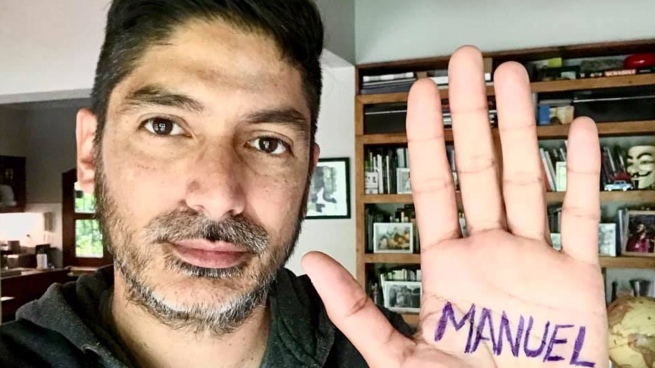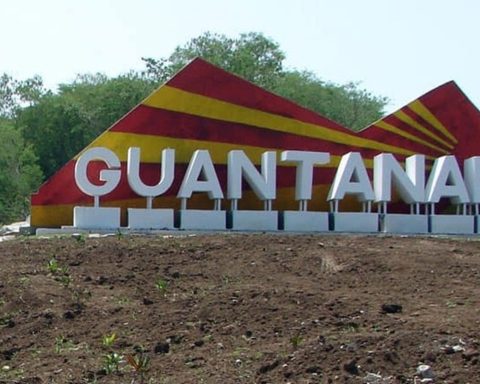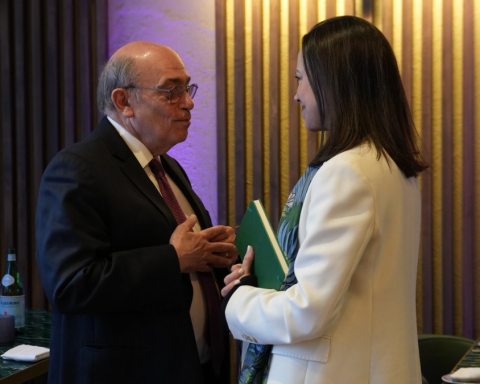The executive secretary of the National Commission for the Right to Identity (Conadi) and member of the Board of Directors of Grandmothers of Plaza de Mayo, Manuel Gonçalves Granada, pondered the role of the State in the “Argentina is looking for you” campaignevaluating that it is a public policy that “expands the mechanisms that were created for the restitution of grandchildren” and other cases of identity substitution.
“Many more cases of baby theft have been resolved that have nothing to do with the last civic-military dictatorship. The same mechanisms were used that were used to restore the identity of the 130 granddaughters and grandsons who recovered their identities thanks to the work of Abuelas,” Gonçalves Granada told Télam.
The referent explained that the objective of the “Argentina is looking for you” campaign is “to continue strengthening public policies in the search for children stolen during the dictatorship”, and in turn, that “they be expanded to other cases of identity substitution”.
“It covers not only cases that have to do with the period of the dictatorship but any other type of case that may also raise questions about their identity,” he added about the campaign.
“Argentina is looking for you” was launched in October 2021 and relaunched in March of this year by the Human Rights Secretariat, headed by Horacio Pietragalla Corti, in coordination with the Grandmothers of Plaza de Mayo association, Conadi, the Foreign Ministry and the National Genetic Data Bank (BNDG).
Gonçalves Granada highlighted that as of the campaign, training sessions were held “at foreign consulates and embassies” so that if “a person appears doubting their identity, their concerns can be channeled anywhere in the world.
“The name of the campaign is important in the sense that it states that Argentina is a country that tries to solve these cases, granting the same possibility to any person. It doesn’t matter where they are,” highlighted Gonçalves Granada.
That way, the secretary of the Conadi considered the struggle of the Mothers and Grandmothers of Plaza de Mayo as “fundamental pillars”, who managed to provide “answers to problems that have no answer in most countries”.
“It is shedding light on what a dictatorship that was disappearances, kidnappings, torture and abuse against humanity leaves,” he remarked.
Besides, I’mheld that the military dictatorship “was built on something that already existed”, in reference to the theft of babies, and considered that “later he concocted it in the worst way, because it was to persecute and murder the mother and father”.
The official appreciated that “the State speaks of the right to identity”, by emphasizing that “it makes visible that the theft of babies happened during the dictatorship, before the dictatorship, and after” State terrorism.
Regarding the appropriation of children, he considered that it is “a criminal practice that has cultural issues, of taking advantage of a situation of vulnerability, of people who think ‘If this mother is poor, it is better that the baby is given to someone else'” .
Although Gonçalves Granada acknowledged that there is no “quantified number”, he stated that “there are around 2000” queries resolved since the creation of Conadi, in 1992, of people searching for their biological origin with no connection to state terrorism.
“Many times, people doubt their identity and do not know that they are adopted. There are adoptions that do not have irregular situations but were processed and the truth of their origin was simply never told to the people who were welcomed into a certain family. “, he stated about the simplest cases.
In these situations, with “the location of the adoption file, the biological origin is clarified,” he explained, but he clarified that there are many other possibilities of resolution such as documentary research and even the intervention of the BNDG.
In this sense, he reflected that today there is “a comprehensive policy that was developed” and stressed that “everything that exists” in the State in terms of identity “was created at the request of Grandmothers.”
In this process, “Abuelas suggested that genetics could help,” recalled Gonçalves Granada, and remarked that the BNDG was created in 1987 in this way.
Later, the State determined the creation of the Conadi in 1992, an organization chaired by Claudia Carlotto, to promote the search for sons and daughters of the disappeared during the last military dictatorship.
“Those are the springs that are being created within the State so that the problem of identity can be addressed,” he added.
Asked about the periods in which consultations increase, he analyzed that “any type of milestone” generates growth, such as “when a grandson appears” or as a result of “news associated with the sentence of a trial” against humanity.
“But above all with dissemination campaigns, there are answers”stated Gonçalves Granada, and assured that since “Argentina is looking for you” was implemented, queries have been received” that include “people who are outside the country.”
Along these lines, he trusted that “we are constantly thinking about campaigns” and reflected that although that message “will not reach everyone, it will reach some of the people and then we have to go looking for the same objective, in different ways” .
“In 2020 all the parameters were modified”recalled the impact of the Covid-19 pandemic, although he stressed that today “the annual average of presentations” has recovered.
Manuel Gonçalves Granada was recovered by the Grandmothers of Plaza de Mayo association in 1997, after knowing the result of a genetic study through which he was able to find out that he was the son of Ana María del Carmen Granada and Gastón Roberto José Gonçalves.
“There were still no public campaigns, Grandmothers had not been able to get a spot on television, as is happening now, and there was no massive visibility of that search”He discussed his experience.
He also contrasted that “the difference between that time and the present is very noticeable, especially after 2003, when public policies for dissemination and social awareness of baby theft began.”


















